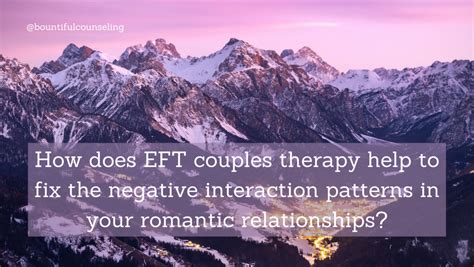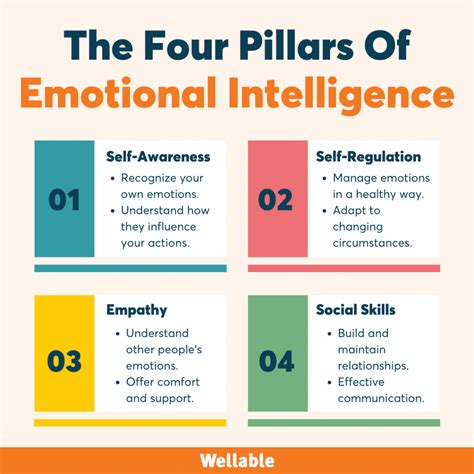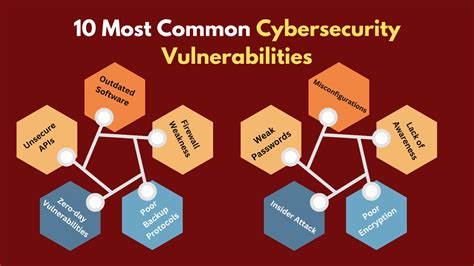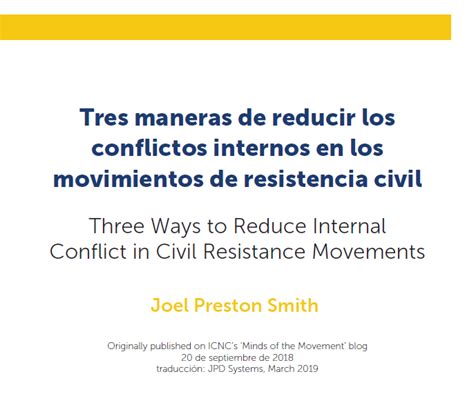Intro
Transform your relationships with Emotionally Focused Therapy (EFT). Learn 7 powerful ways EFT heals emotional wounds, strengthens bonds, and fosters deeper connections. Discover how EFTs evidence-based approach helps couples and families overcome attachment issues, communication barriers, and intimacy problems, leading to lasting love, trust, and emotional resilience.
Emotionally Focused Therapy (EFT) is a highly effective form of couples therapy that has been extensively researched and proven to help heal and strengthen relationships. By understanding and addressing the underlying emotional dynamics that drive conflicts and disconnection, EFT provides a powerful framework for rebuilding trust, intimacy, and communication. In this article, we will explore seven ways that Emotionally Focused Therapy can help heal relationships.
Emotionally Focused Therapy was developed by Dr. Sue Johnson and Dr. Les Greenberg in the 1980s, and it is based on the idea that emotions are a primary driver of human behavior. By acknowledging and understanding the emotional needs and vulnerabilities of each partner, EFT helps couples to develop a more secure and loving relationship. With its focus on emotional safety, validation, and empathy, EFT provides a unique and effective approach to relationship healing.

1. Identifying and Understanding Negative Patterns
One of the primary ways that EFT helps to heal relationships is by identifying and understanding the negative patterns that have developed over time. These patterns, known as "cycles of distress," can be incredibly damaging to a relationship and can lead to feelings of disconnection, resentment, and hopelessness. By recognizing and understanding these patterns, couples can begin to break free from them and develop more positive and loving interactions.
For example, a couple may find themselves stuck in a pattern of criticism and defensiveness, where one partner constantly criticizes the other, and the other partner becomes defensive and dismissive. This pattern can lead to feelings of hurt, anger, and frustration, and can ultimately erode the foundation of the relationship. By identifying and understanding this pattern, the couple can begin to work together to break free from it and develop more positive and loving interactions.
The Importance of Emotional Awareness
Emotional awareness is a critical component of EFT, and it involves developing a deeper understanding of one's own emotions and the emotions of one's partner. By becoming more aware of their emotions, couples can begin to recognize the negative patterns that have developed in their relationship and can start to work together to change them.
For example, a partner who is prone to anger and criticism may begin to recognize the hurt and vulnerability that underlies their behavior. By acknowledging and understanding these underlying emotions, the partner can begin to develop more empathy and compassion for their partner, and can start to work on changing their behavior.

2. Creating a Safe and Supportive Environment
Another way that EFT helps to heal relationships is by creating a safe and supportive environment where both partners feel comfortable and secure. This involves developing a sense of emotional safety, where both partners feel free to express their emotions and vulnerabilities without fear of judgment or rejection.
For example, a couple may work on creating a safe and supportive environment by establishing clear boundaries and guidelines for communication. This can involve setting aside dedicated time for communication, avoiding criticism and blame, and focusing on active listening and empathy.
The Power of Vulnerability
Vulnerability is a critical component of any healthy relationship, and it involves being open and honest about one's emotions and vulnerabilities. By being vulnerable, partners can develop a deeper sense of connection and intimacy, and can build trust and understanding.
For example, a partner who is struggling with feelings of insecurity and doubt may be vulnerable and open with their partner about these feelings. By sharing their vulnerabilities, the partner can develop a deeper sense of connection and intimacy with their partner, and can build trust and understanding.

3. Fostering Empathy and Compassion
EFT also helps to heal relationships by fostering empathy and compassion between partners. By developing a deeper understanding of each other's emotions and vulnerabilities, couples can begin to see things from each other's perspective and can develop more empathy and compassion.
For example, a partner who is struggling with feelings of anger and resentment may begin to see things from their partner's perspective and can develop more empathy and compassion for their partner's feelings and needs. By doing so, the partner can begin to respond in a more loving and supportive way, rather than reacting in anger and resentment.
The Importance of Active Listening
Active listening is a critical component of EFT, and it involves fully engaging with one's partner and listening to their emotions and needs. By actively listening, partners can develop a deeper understanding of each other and can build trust and intimacy.
For example, a partner who is actively listening to their partner may repeat back what they have heard, ask clarifying questions, and provide emotional validation. By doing so, the partner can develop a deeper understanding of their partner's emotions and needs, and can build trust and intimacy.

4. Building Trust and Intimacy
EFT also helps to heal relationships by building trust and intimacy between partners. By developing a deeper understanding of each other's emotions and vulnerabilities, couples can begin to build trust and intimacy, and can develop a more secure and loving relationship.
For example, a couple may work on building trust and intimacy by setting aside dedicated time for connection and communication. This can involve scheduling regular date nights, practicing active listening, and engaging in activities that promote emotional safety and vulnerability.
The Power of Rituals and Routines
Rituals and routines can be a powerful way to build trust and intimacy in a relationship. By establishing consistent and predictable patterns of behavior, couples can develop a sense of security and stability, and can build trust and intimacy.
For example, a couple may establish a bedtime routine that involves reading together, practicing gratitude, and engaging in physical touch. By establishing this routine, the couple can develop a sense of security and stability, and can build trust and intimacy.

5. Managing Conflict and Difficult Emotions
EFT also helps to heal relationships by teaching couples how to manage conflict and difficult emotions in a healthy and constructive way. By developing a deeper understanding of each other's emotions and vulnerabilities, couples can begin to navigate conflicts and difficult emotions in a more loving and supportive way.
For example, a couple may work on managing conflict by establishing clear boundaries and guidelines for communication. This can involve setting aside dedicated time for conflict resolution, avoiding criticism and blame, and focusing on active listening and empathy.
The Importance of Emotional Regulation
Emotional regulation is a critical component of EFT, and it involves developing the ability to manage and regulate one's emotions in a healthy and constructive way. By learning how to regulate their emotions, couples can begin to navigate conflicts and difficult emotions in a more loving and supportive way.
For example, a partner who is prone to anger and frustration may learn how to regulate their emotions by taking a break, practicing deep breathing, and engaging in physical activity. By doing so, the partner can begin to manage their emotions in a more healthy and constructive way, and can develop a more loving and supportive relationship with their partner.

6. Fostering Forgiveness and Letting Go
EFT also helps to heal relationships by fostering forgiveness and letting go. By developing a deeper understanding of each other's emotions and vulnerabilities, couples can begin to let go of past hurts and resentments, and can develop a more loving and supportive relationship.
For example, a couple may work on forgiveness by practicing empathy and compassion, and by engaging in activities that promote emotional healing and release. This can involve writing letters, practicing mindfulness, and engaging in physical touch.
The Power of Self-Reflection
Self-reflection is a critical component of EFT, and it involves developing a deeper understanding of one's own emotions and vulnerabilities. By engaging in self-reflection, couples can begin to let go of past hurts and resentments, and can develop a more loving and supportive relationship.
For example, a partner who is struggling with feelings of anger and resentment may engage in self-reflection by journaling, practicing mindfulness, and engaging in physical activity. By doing so, the partner can begin to develop a deeper understanding of their emotions and vulnerabilities, and can start to let go of past hurts and resentments.

7. Building a Secure and Loving Relationship
Finally, EFT helps to heal relationships by building a secure and loving relationship. By developing a deeper understanding of each other's emotions and vulnerabilities, couples can begin to build a more secure and loving relationship, and can develop a stronger and more resilient bond.
For example, a couple may work on building a secure and loving relationship by establishing clear boundaries and guidelines for communication, practicing active listening, and engaging in activities that promote emotional safety and vulnerability.
The Power of Commitment
Commitment is a critical component of any healthy relationship, and it involves making a conscious decision to prioritize the relationship and to work through challenges and difficulties together. By committing to the relationship, couples can begin to build a more secure and loving relationship, and can develop a stronger and more resilient bond.
For example, a couple may make a commitment to each other by setting aside dedicated time for connection and communication, practicing active listening, and engaging in activities that promote emotional safety and vulnerability. By doing so, the couple can develop a deeper understanding of each other's emotions and vulnerabilities, and can build a more secure and loving relationship.

In conclusion, Emotionally Focused Therapy is a powerful tool for healing and strengthening relationships. By identifying and understanding negative patterns, creating a safe and supportive environment, fostering empathy and compassion, building trust and intimacy, managing conflict and difficult emotions, fostering forgiveness and letting go, and building a secure and loving relationship, couples can develop a deeper understanding of each other's emotions and vulnerabilities, and can build a stronger and more resilient bond.
We hope this article has provided you with a deeper understanding of the ways in which Emotionally Focused Therapy can help heal relationships. If you are struggling with relationship issues, we encourage you to seek out the help of a qualified therapist who can provide you with the support and guidance you need to build a stronger and more loving relationship.
What is Emotionally Focused Therapy?
+Emotionally Focused Therapy (EFT) is a form of couples therapy that helps partners understand and change negative patterns of interaction that can lead to relationship distress.
How does EFT work?
+EFT works by helping partners identify and understand the negative patterns of interaction that are causing distress in their relationship, and then teaching them how to change these patterns and develop more positive and loving interactions.
What are some common issues that EFT can help with?
+EFT can help with a wide range of relationship issues, including communication problems, conflict, infidelity, and feelings of disconnection and isolation.
